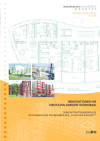Suchergebnisse für "Factsheet%3A Energietechnologien gestalten%2C die f%C3%BCr alle sinnvoll und nutzbar sind"
Kongress: 10. schönauer Expertentage 2011
17. - 18. November 2011
Forschungs- und Kompetenzzentrum für Bauen und Energie
Sonnenplatz 1, 3922 Großschönau, AT
Wirtschaft - Innovation - Nachhaltigkeit: Energieeffizienz als globale Herausforderung
Zusammenfassungen von IEA Berichten aus Sicht des IEA GHG TCP
Das IEA Treibhausgasemissionen Forschungsprogramm (GHG TCP) hat drei Berichte der IEA unter dem Blickwinkel seines thematischen Schwerpunkts zusammengefasst.
Umfassende Modernisierung eines Gründerzeithauses mit EnerPHit-Zertifikat ausgezeichnet
Das "Stadt der Zukunft"-Demonstrationsprojekt, welches trotz strengen Anforderungen des Denkmalschutzes eine Energieeinsparung von 85 Prozent gegenüber dem ursprünglichen Zustand erreicht, wurde mit dem EnerPHit-Zertifikat des Passivhaus Institutes sowie mit dem Wiener Stadterneuerungspreis 2018 ausgezeichnet.
DI (FH) Volker Schaffler, MA
Basic research on the load bearing capacity and high thermal insulation properties of foam glass granulate
The aim of the scientific investigations is to find the characteristic parameters of foam glass granulate applied as load transfer layer and thermal insulation, to provide the base for the application of a multi functional and economical insulation material at the interface between building and ground for buildings of the future.
Programme of Work IEA-ISGAN Annex 6: Power T&D Systems, Issue 4.0

Das Dokument stellt das Arbeitsprogramm des IEA-ISGAN Annex 6 in Version 4 dar. Es wurde im Oktober 2014 vom ISGAN ExCo genehmigt.
IEA AFC Annex 35: Steam reforming of bioethanol-gasoline mixtures (2018)

Dieser Abstract befasst sich mit der Reformierung von E85 Bioethanol zur Erzeugung von Synthesegas.
D. Ladenhaufen, K. Malli, V. Hacker
Herausgeber: Graz University of Technology, S. 27-28
Englisch
Downloads zur Publikation
Workshop: Optimierung von thermischen Solarsystemen im mehrgeschoßigen Wohnbau
23. Mar 2007
Wirtschaftskammer Salzburg, Plenarsaal, Julius-Raab-Platz 15027 Salzburg, AT
Umsetzungserfahrungen, technische Lösungsansätze zur Integration von Solarsystemen in den Bestand von Wohnbauten
Nachhaltiges Investment - Rendite mit gutem Gewissen
7. - 8. April 2010
Raiffeisenakademie
Steingasse 11-13
1030 Wien, AT
Diese Schulung wird im Rahmen der Programmlinie "Fabrik der Zukunft" - einer Initiative des BMVIT - durchgeführt.
Das Klima verändert sich - auch in Österreich (Wien, A)
Donnerstag 7. November 2002, 14:00 Uhr
ORF, Radio Kulturhaus
1040 Wien, Argentinierstraße 30A
Unkonventionelles science event zum Thema Klimawandel
GeoHub - Sustainable heat management of near-surface geothermal energy in urban environments
Innovative approaches to streamline geothermal projects from planning to operation, ensuring they are climate-neutral, resource-efficient, and economically viable.
Themendialog "Sommerkomfort - innovative Gebäudekonzepte"
20. Juni 2011
Kammer der Architekten und Ingenieurkonsulenten, Karlsgasse 9
1040 Wien, AT
Dieses Themenspektrum wird bei der Veranstaltung in vier Fachvorträgen beleuchtet.
Info-Veranstaltung: Baufamilien-Tag
28. Juni 2009
1. Europäisches Passivhausdorf zum Probewohnen
3922, Großschönau, AT
Der Sonnenplatz Großschönau veranstaltet am 28. Juni 2009 erneut einen Baufamilien Tag. Dieses Mal zum Schwerpunktthema "Luftdichtheit im Passivhaus".
IEA Bioenergy Task 39: Newsletter, Ausgabe 56, Dezember 2020

Der Schwerpunkt dieser Ausgabe liegt auf einem Artikel zum Thema „India Biofuel economy roadmap – Challenges & Prospects“.
Mahmood Ebadian, Jack Saddler, Jim McMillan
Herausgeber: IEA Bioenergy Task 39, 2020
Englisch, 23 Seiten
Downloads zur Publikation
IEA-DSM Spotlight-Newsletter #64, März 2017

Der Themenfokus des Newsletter liegt auf dem Nutzen von Verhaltensänderungen, der Wirtschaftlichkeit von Gebäudenachrüstungen sowie der Schweizer Energiestrategie 2050
Herausgeber: IEA DSM
Englisch, 7 Seiten
Downloads zur Publikation
TOPS – Topology-optimised reinforced concrete slabs with digital formwork and reinforcement
The TOPS project is investigating material-efficient ribbed concrete slabs, which save up to 50% of the concrete used in conventional flat slabs by topology-optimisation. A 'file-to-factory' process enables the automated production of formwork and reinforcement using digital technologies. The construction method reduces CO₂ emissions and contributes to the decarbonisation of the construction industry.
Nachhaltige Regionalplanung In Österreich

Das Projekt Ökofit - Forschung für integrierte Technik
Forschungsforum
4/1996
Herausgeber: BMVIT
Deutsch, 6 Seiten
Downloads zur Publikation
KlimaQuartierNikolai
The project aims to improve sustainable energy supply and energy efficiency for the planned NikolaiQuartier in Villach by utilizing waste heat and local energy sources. An innovative energy concept, which also includes the regional hospital, is being developed. Active involvement of residents and stakeholders is key to securing acceptance of the eco-friendly neighbourhood.
Green Energy Lab
Green Energy Lab ist eine Forschungsinitiative für nachhaltige Energielösungen, darunter auch im Gebäudebereich, sei es im Austausch von Ideen, bei der Entwicklung neuer Technologien oder der Erprobung innovativer Geschäftsmodelle.
IEA Bioenergy Task 39: Drop-in Biofuels - The key role that co-processing will play in its production (2019)

Der vorliegende Bericht beschäftigt sich mit der Schlüsselrolle der Co-Verarbeitung von Drop-In-Biokraftstoffen in der Raffinerie.
Susan van Dyk, Jianping Su, James D. McMillan, Jack (John) N. Saddler
Herausgeber: IEA Bioenergy Task 39
Mehrsprachig, 156 Seiten
